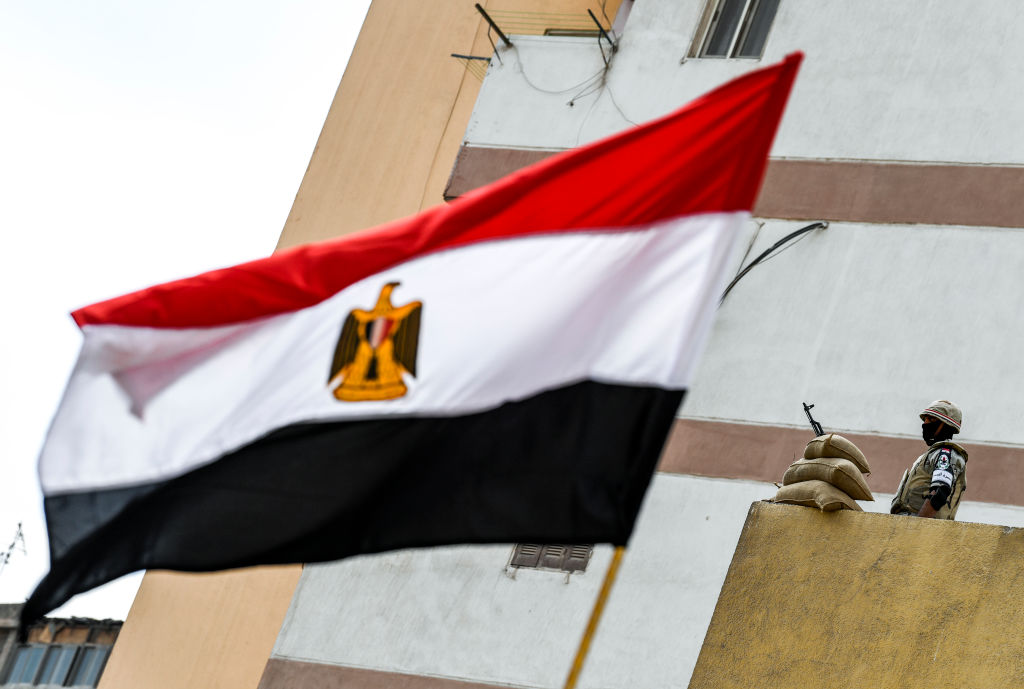In response to the hunger strike, which began on June 17, authorities have retaliated against the detainees by beating them, applying electric shocks with tasers and punished some of them with disciplinary measures, in an effort to coerce them to end their strike, according to a statement issued by detainees from prison. At least 10 hunger-strikers were blindfolded and transferred to special cells which they are not allowed to exit all day.
“The Egyptian authorities have pushed scores of detainees at al-Aqrab to breaking point. The combination of squalid and inhumane detention conditions and the denial of family visits and access to their lawyers – in some cases for over two years – has created an unbearable situation for detainees,” said Magdalena Mughrabi, Deputy Middle East and North Africa Director at Amnesty International.
“By refusing to allow detainees to see their families, the Egyptian authorities are flagrantly flouting both Egyptian and international law and displaying callous cruelty. Instead of prolonging their suffering, the Egyptian authorities should immediately end this practice and allow family visits for inmates at al-Aqrab.”
Barred from receiving family visits
According to court documents reviewed by Amnesty International, before their referral to trial, the majority of those on hunger-strike were subjected to enforced disappearances for periods ranging from 11 to 155 days, before the authorities acknowledged their detention and brought them before the Supreme State Security Prosecution, a special branch of the prosecution which has jurisdiction over terrorism-related crimes. Many also said they suffered torture and other ill-treatment at the hands of National Security Agency (NSA) officers.
Amnesty International interviewed four family members of people participating in the hunger strike who said that at this point they were only able to catch sight of their loved ones for a few minutes when transported in police cars on their way to and from the prosecution building in New Cairo for questioning. After the detainees’ referral to trial, they could only see them from behind glass cages in the courtrooms during the hearings and could only communicate with them using hand signals.
Family members also described how police and court security officials physically assaulted them and hurled insults at them, and sometimes denied them entry to the courtroom or refused to bring detainees causing the judge to postpone the hearing.
Two said that even when they managed to receive authorization from the Supreme State Security Prosecution to visit their detained family members, the prison authorities always refused to allow the visit to go ahead. In one incident in February 2017, a police officer at al-Aqrab prison ripped up the written document authorizing the family member’s visit.
International standards require that detainees be allowed regular contact with their family members and prohibit the use of preventing family visits as a disciplinary measure.
Several detainees had previously gone on hunger strikes in October 2017 and February 2018 and ended their protest on the basis of assurances that they would be allowed family visits, but these promises were never fulfilled.
Dire prison conditions
The detainees are held in overcrowded cells infested with mosquitos, flies and other insects which, without fans or proper ventilation, reach temperatures of over 40 degrees Celsius in the summer. Prison authorities also deny detainees adequate health care, do not allow them to receive food or drinks from their families outside prison and have placed restrictions on clothes and medicine.
The Egyptian authorities must effectively investigate the allegations of torture or other ill-treatment of detainees on hunger strike and bring those suspected of responsibility to justice, in accordance with international fair trial standards.
The authorities must also allow independent observers to visit Al-Aqrab prison, in order to ensure that the conditions of detention are up to international standards.
“There can be no justification for the cruel and inhumane treatment these detainees have endured. The Egyptian authorities must urgently ensure that all individuals in their custody receive adequate health care, food, and are held in sanitary conditions in properly ventilated cells in accordance with international law,” said Magdalena Mughrabi.
“The numerous allegations of the torture and other ill-treatment of hunger strikers must be investigated, and officials suspected of responsibility must be brought to justice.”

